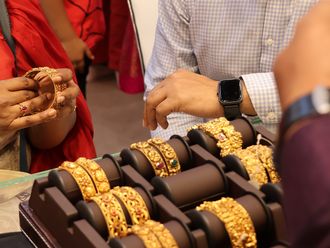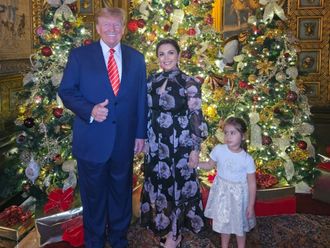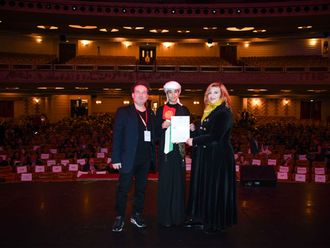Many soldiers of Philippine descent expressed joy in coming home to their country of origin as American nationals to fight militants such as the Abu Sayyaf in the southern Philippines.
One of them, Staff Sgt Ariel Gamboa, showed off his prowess as mimic by aping U.S. President George Bush when the latter was vehemently expressing his anger at the suspected Middle Eastern militants who attacked Washington and New York last September 11.
Gamboa happily showed off his talent on camera, also impersonating Donald Duck and other cartoon characters.
He impersonated a woman and former president Joseph Estrada, with many onlookers saying he had the makings of another Willie Nepomuceno, the country's legendary impersonator of controversial political personalities.
"If he stays here, his talent would bring him onstage, not on the dangerous frontline," said a TV anchorwoman.
Many said Gamboa could be the quintessential Filipino who could laugh at adversities such as the one facing the Philippine-U.S. war games, and the 60 to 70 elusive Abu Sayyaf members who are holding two American missionaries and a Filipina nurse hostage in the hinterlands of Basilan.
Gamboa said he likes the tension and the action on the ground, but added he could not stop himself from his little antics and presentations which have entertained American soldiers in their newly established camps in Basilan.
"Maybe, in time," Gamboa said when asked if he would be adding to this repertoire and, perhaps, even Osama bin Laden, believed to be the mastermind of the September 11 terror attacks in the U.S.
Another Filipino-American soldier, Sgt. Jose Edralin, is the opposite of Gamboa. He is more serious and introspective.
"We have to do our duty here," he said when asked what he felt about fighting some Muslim rebels.
"We have been asked by our colleagues what it is to be a Filipino, to be a Christian, to be a Muslim. I have said we have a multi-cultural set-up," explained Edralin, and added that diversity is not a hindrance to co-existence.
Many Filipino-American soldiers who can still speak Filipino are often asked to translate, although other American soldiers have curiously also revealed their ability to speak the country's national language.
But despite the apparent smiles, many agree that coming home to action-filled Basilan is far from the homecoming that many Filipino-American soldiers had envisaged.
Filipino-American soldiers feel at home in Basilan
Many soldiers of Philippine descent expressed joy in coming home to their country of origin as American nationals to fight militants such as the Abu Sayyaf in the southern Philippines.












